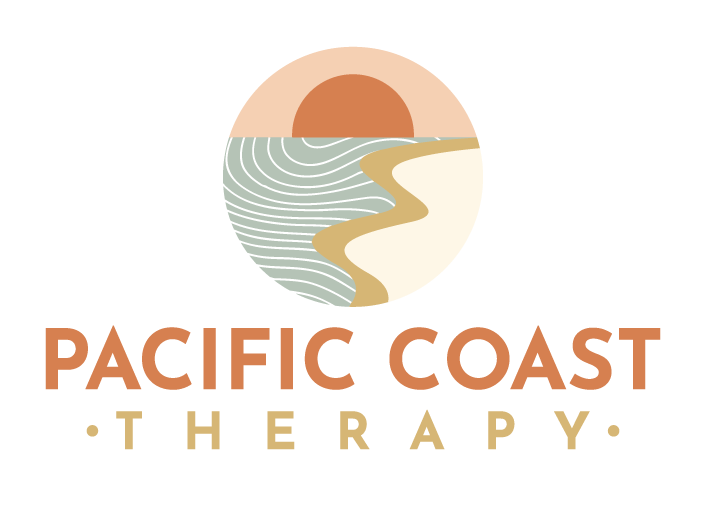Anger Management Therapy for Healthier Reactions and Stronger Relationships
Uncontrolled anger can damage relationships, create tension at home or work, and leave you feeling misunderstood. If you find yourself reacting too quickly or too strongly, you’re not alone, and help is available.
At Pacific Coast Therapy, we offer anger management therapy to help you better understand your triggers, develop healthier responses, and rebuild communication with the people in your life. With guidance from our licensed therapists, you can take meaningful steps toward calm, clarity, and stronger emotional control.

Understanding the Root Causes of Anger
Anger often builds silently beneath the surface. It can feel like a sudden outburst, but more often, it’s the result of unresolved emotional strain. Many people who struggle with managing anger also struggle with anxiety, feeling overwhelmed, tense, or emotionally disconnected.
Therapy can help unpack the reasons behind these responses and create space for more balanced reactions. Identifying the source is the first step toward long-term emotional health.
1. Unresolved Trauma
Experiences like abuse, accidents, or witnessing violence can leave emotional wounds that never fully heal without support. These past events may create a constant sense of threat, making someone more reactive to everyday stress. Even minor disagreements or loud noises can spark intense emotions when trauma is left untreated.
2. Chronic Anxiety
Anxiety is a constant state of alertness that wears down emotional control. When the nervous system is under pressure for long periods, the body becomes reactive and short-tempered. Tasks that feel simple to others may seem impossible, and anger becomes a quick, impulsive outlet when tension peaks.
3. Poor Communication Skills
Not having the words or confidence to speak openly can lead to frustration. When people feel misunderstood, ignored, or dismissed, they may bottle up their emotions until they explode. Instead of explaining hurt, disappointment, or fear, they might express it through outbursts or passive-aggressive behavior.
4. Low Self-Esteem or Shame
Those with low self-worth may interpret neutral feedback or everyday interactions as personal attacks. Feelings of shame can be overwhelming, and instead of expressing sadness or fear, anger becomes a defense mechanism. This often leads to strained relationships and isolation, deepening the emotional pain.
5. Learned Behavior from Childhood
Children who grow up in homes where yelling, aggression, or emotional coldness were normal may carry those patterns into adulthood. Without learning alternative ways to cope or express feelings, they may default to anger in moments of stress, even when they want to react differently.
6. Unprocessed Grief
Grief doesn’t always show up as sadness. Sometimes, people dealing with deep loss, such as the death of a loved one, a divorce, or sudden life changes, experience intense anger. They may feel robbed, helpless, or abandoned. Without proper support like grief counseling, these emotions can linger and turn into irritability, resentment, or explosive behavior.
Techniques to Control and Express Emotions
Managing anger doesn’t mean suppressing how you feel; it’s learning to respond with intention instead of reacting on impulse. With the right support, individuals can gain control over their emotions and express them in healthier, more productive ways. Through anger management counseling, clients can develop the tools they need to communicate, reduce emotional overwhelm, and build stronger connections with those around them.
1. Deep Breathing and Grounding Exercises
One of the first steps taught in anger management therapy is how to pause in the moment. Slow, deep breathing helps lower your heart rate and calms your nervous system. Grounding techniques, such as focusing on the feel of your feet on the floor or identifying five things you can see, bring you back to the present and help stop emotional escalation.
2. Identifying Emotional Triggers
Through anger management therapy, clients are guided to pinpoint what sparks their reactions. Triggers may include specific situations, phrases, or patterns from past experiences. Once identified, these can be prepared for, avoided, or handled with greater awareness.
3. Recognizing Physical Signs of Anger
Before anger is expressed outwardly, the body often sends early warning signs, tight muscles, clenched fists, or a rising heartbeat. Learning to notice these physical cues allows a person to act before the anger peaks. In anger control therapy, clients are trained to respond to these signals with calming techniques instead of letting them spiral.
4. Practicing Time-Outs
Walking away before emotions boil over is a practical strategy taught in therapy. A brief pause or stepping outside, counting to ten, or spending five minutes alone creates a gap between reaction and response. With repeated practice, this technique becomes a habit that reduces harm and improves self-control.
5. Reframing Negative Thoughts
Anger often grows from distorted thinking, like assuming others meant to offend you. In anger management counseling, cognitive techniques are used to challenge and replace unhelpful beliefs. Learning to reframe thoughts can shift your perspective and reduce the intensity of your reactions.
6. Channeling Energy into Healthy Outlets
Anger is energy, and without direction, it may explode or turn inward. Physical activity, creative work, journaling, or mindfulness can serve as safe release valves. These alternatives support emotional health while reinforcing self-discipline.

Building Stronger Relationships Through Better Communication
Poor communication often fuels emotional disconnection, especially for those dealing with unresolved anger. Through anger control counseling, individuals can learn how to express frustration without aggression, set healthy boundaries, and listen more effectively.
Communication becomes a bridge, not a barrier, when it’s practiced with care and patience. Whether in personal or professional settings, improving how we communicate can transform how we connect.
Therapists offering anger issues therapy focus not just on controlling outbursts, but also on strengthening relational skills. You’ll learn how to stay present in tense conversations, avoid blame language, and build mutual understanding. This kind of progress takes time, but with the support of anger management therapy, it becomes a sustainable path toward deeper trust and emotional safety.
If you’re interested in how communication can reshape your family dynamics, read our blog: Communication: The Secret Weapon of Happy Families.

Get Started
The Pacific Coast Therapy team is passionate about helping people thrive. If you're ready to take the next step in your life, contact us today to schedule a free 15-minute phone consultation. One of our caring therapists can offer support. To start your therapy journey, please follow these simple steps:
1
Contact Us
Text, call, email, or fill out the form at the bottom of the page in order to contact us.
Meet With A Caring Therapist
Take part of a free 15-minute consultation with a therapist to see if it is the right fit.
3
Begin The Road To Healing
Start meeting on a regular basis and conquer your goals.
Transforming Anger into Positive Action
Anger, when left unchecked, can harm relationships, cloud judgment, and lead to long-term stress. But with the right tools and support, it can also be a powerful force for change.
At Pacific Coast Therapy, our professionals help individuals channel intense emotions into meaningful, constructive action. Through personalized therapy for anger management, we guide clients to better understand their triggers and develop strategies that bring clarity, not conflict.
Using evidence-based techniques, our anger management therapy sessions focus on emotional awareness, impulse control, and problem-solving. Whether you prefer in-person sessions or the flexibility of online therapy, our approach is built around your comfort and needs.
Getting started with Pacific Coast Therapy is simple and supportive. Reach out now—call, text, email, or use the form—and we’ll match you with the right therapist to begin your road to healing. Connect with our team, we’re here when you’re ready.
Get Started

